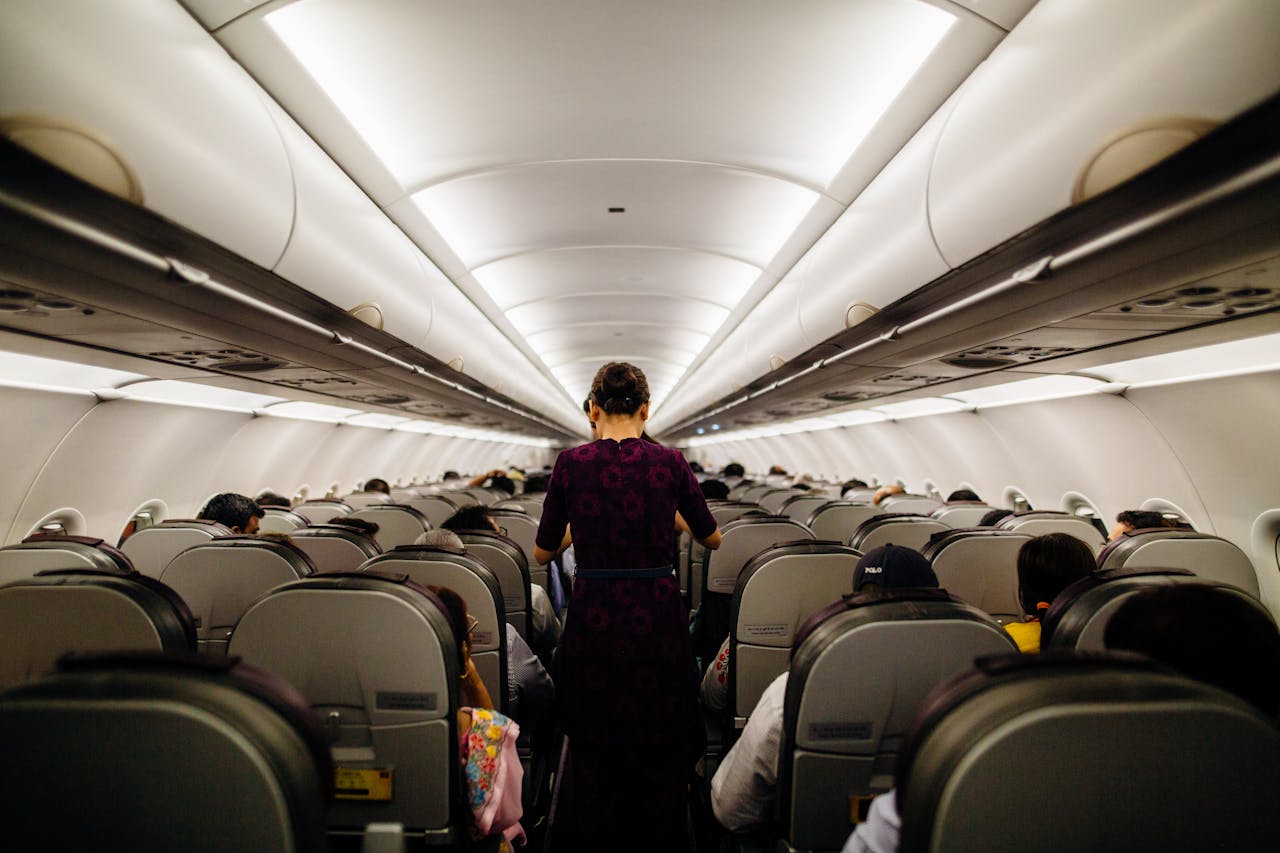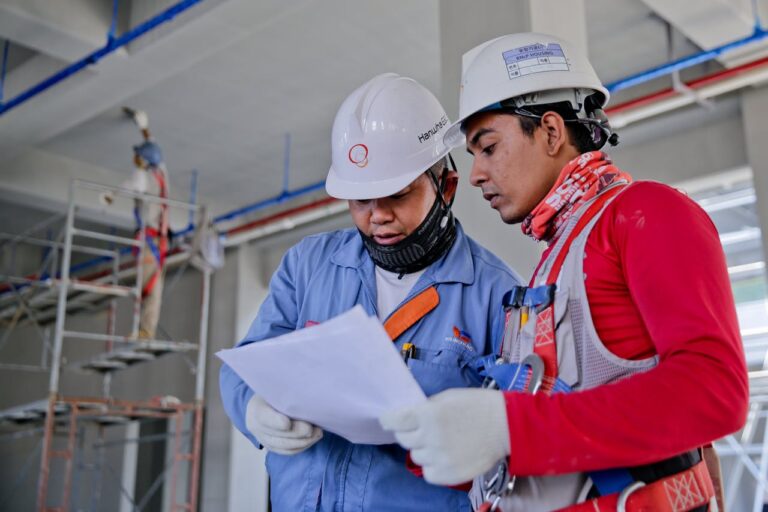Free Flight Attendant Assessment

Free Flight Attendant Assessment Test Practice
Planning to become a flight attendant? Most airlines require you to pass an online assessment test as part of the hiring process. This test evaluates your customer service skills, judgment, and ability to work under pressure. On our website, you can practice the flight attendant assessment test for free. Get familiar with situational questions, personality profiling, and reading comprehension exercises to boost your confidence and improve your chances of getting hired. Start preparing today and take the first step toward your cabin crew career.
If you’re dreaming of becoming a flight attendant, understanding the hiring process is key to landing the job. Major U.S. airlines like Delta, American Airlines, United, and Southwest follow a structured recruitment process that includes an online application, assessment test, interview, and training.
The process begins with an online job application through the airline’s career portal. Candidates must meet basic qualifications such as being at least 21 years old, having a high school diploma or GED, and being eligible to work in the U.S.
Qualified applicants are invited to complete a flight attendant assessment test. This test includes situational judgment questions, personality evaluations, and language comprehension. It’s designed to assess your problem-solving skills, emotional intelligence, and ability to provide excellent customer service.
Next is the video interview stage-either prerecorded or live-where you’ll be asked behavioral questions such as “Tell me about a time you handled a customer complaint” or “How do you stay calm under pressure?”
Candidates who pass the interview may be invited to an in-person hiring event or open day, which includes group activities, role plays, and one-on-one interviews with recruiters. Airlines are looking for friendly, professional individuals with strong communication skills and a focus on safety and service.
Flight Attendant Assessment Test – Free Practice
If you’re applying to become a flight attendant, one of the first challenges you’ll face is the flight attendant assessment test. This test is a key part of the hiring process used by major airlines worldwide-including Delta, Emirates, American Airlines, British Airways, and others-to screen candidates before the interview stage. On our site, you can practice the flight attendant assessment test for free, helping you prepare with confidence.
What’s Included in the Flight Attendant Assessment Test?
The assessment test is designed to evaluate your behavioral traits, situational judgment, communication skills, and problem-solving abilities. Airlines use it to determine how well you’ll handle real-life challenges such as dealing with upset passengers, managing in-flight emergencies, and working as part of a team.
Here are the most common sections:
Situational Judgment Test (SJT): You’ll be presented with work-related scenarios and must choose the best response.
Personality Profiling: Measures traits like reliability, empathy, teamwork, and flexibility.
Reading Comprehension: Tests your ability to understand and follow written procedures.
Language Skills (for international airlines): May include grammar, vocabulary, or verbal reasoning.
Why Preparation Matters
Airlines receive thousands of applications for a limited number of positions. Scoring well on the assessment test increases your chances of moving forward in the hiring process. Many candidates are eliminated at this stage due to a lack of preparation or misunderstanding the format.
Practice for Free
On our website, you can access free flight attendant practice tests that mirror the actual assessments used by airlines. These include sample SJT questions, personality quizzes, and comprehension exercises. Practicing in advance helps reduce stress, improve your accuracy, and boost your test performance.
Flight Attendant Interview: What to Expect
The flight attendant interview is a critical step in the hiring process, typically following the assessment test. It may begin with a video interview-live or prerecorded-featuring behavioral questions like, “Describe a time you resolved a customer issue.” If successful, you may be invited to an in-person recruitment day, which includes group activities, role plays, and final interviews. Airlines assess your communication skills, professionalism, and ability to handle pressure. Dress professionally, smile confidently, and emphasize your teamwork, customer service, and safety awareness. Preparing ahead can significantly increase your chances of landing the job.
Here are 12 common Flight Attendant interview questions and suggested answers to help candidates prepare effectively:
1. Why do you want to become a flight attendant?
Answer: I’m passionate about travel, customer service, and working in dynamic environments. I enjoy helping people and believe this role allows me to create a positive experience for every passenger.
2. How do you handle difficult passengers?
Answer: I remain calm, listen carefully, and address their concerns respectfully. I try to resolve the issue quickly while maintaining safety and a professional attitude.
3. What would you do in a medical emergency during a flight?
Answer: I’d follow airline safety procedures, alert the captain, and assist the passenger while coordinating with other crew members and using onboard medical supplies.
4. How do you handle working long hours or overnight shifts?
Answer: I stay well-rested, eat healthily, and maintain a positive mindset. I adapt quickly and understand the importance of staying focused and alert.
5. Tell me about a time you worked as part of a team.
Answer: At my last job, I coordinated with team members to meet customer needs during a busy event, ensuring everyone communicated and supported one another.
6. How do you deal with stress?
Answer: I stay calm by breathing deeply and focusing on solutions. I prioritize tasks and stay organized to manage pressure effectively.
7. What would you do if a passenger refused to follow safety instructions?
Answer: I’d calmly explain the importance of compliance, using empathy and firmness. If needed, I’d escalate to the cabin manager following company policy.
8. Are you comfortable with relocating or being away from home for long periods?
Answer: Yes, I understand that flexibility is essential in this role, and I’m excited for the opportunity to travel and adapt to different schedules.
9. How would you handle a language barrier with a passenger?
Answer: I’d use clear, simple words, gestures, and visual aids if available. I would also seek help from multilingual colleagues if necessary.
10. How do you prioritize tasks during busy flight times?
Answer: I assess urgency, follow protocol, and communicate with team members to ensure all safety and service responsibilities are covered efficiently.
11. Describe your customer service experience.
Answer: I’ve worked in fast-paced hospitality settings where I resolved issues, met guest needs, and consistently delivered friendly, professional service.
12. What makes you a good fit for our airline?
Answer: I bring strong communication skills, professionalism, and a safety-first mindset. I align with your airline’s values and strive to deliver exceptional passenger experiences.
Flight Attendant Assessment Tests by Company
| Airline | Assessment Test Name | Focus Areas | Notes |
|---|---|---|---|
| Delta Air Lines | Delta Flight Attendant Assessment | Situational judgment, personality, customer service scenarios | Includes virtual job tryout; strong customer focus |
| American Airlines | American Airlines Talent Assessment | Behavioral questions, reading comprehension, personality profile | May include additional online testing after initial application |
| United Airlines | United Airlines Cabin Crew Assessment | Situational response, service orientation, conflict resolution | Often followed by video interview |
| Southwest Airlines | Southwest Culture Fit and Job Simulation | Teamwork, culture alignment, passenger interaction | Emphasis on Southwest’s values and communication style |
| JetBlue Airways | JetBlue Situational and Personality Test | Judgment, adaptability, service mindset | Part of the initial online screening process |
| Alaska Airlines | Alaska Pre-Hire Assessment | Conflict management, communication, work pace | Includes attention to detail questions |
| Qatar Airways | Qatar Cabin Crew Assessment Day | Group tasks, English test, situational role-plays | Conducted in person, includes strict grooming checks |
| Emirates | Emirates Online Assessment + Assessment Day | Language skills, personality, problem-solving, group exercises | Includes reach test and English grammar questions |
| British Airways | BA Cabin Crew Online Test | Situational judgment, safety scenarios, comprehension | Shortlisted candidates invited to assessment center in the UK |
| Etihad Airways | Etihad Online Personality & SJT | Hospitality focus, team behavior, service excellence | Video interview typically follows shortly after online test |
FAQs
Most airlines require applicants to be at least 18–21 years old, have a high school diploma or equivalent, and be eligible to work in the country. You should also meet height and reach requirements, have good vision, and be fluent in English (additional languages are a plus).
No. Entry-level positions are available, and airlines provide paid training for new hires. However, customer service or hospitality experience can give you an advantage.
Visit the airline’s careers page and submit an online application. You may need to include a resume, photo, and cover letter. Be ready to complete an assessment test after applying.
The process can take from 2 to 8 weeks depending on the airline and applicant volume.
Most airlines offer paid training, but policies vary. Some also provide uniforms or offer a reimbursement program.
Strong communication, teamwork, customer service, flexibility, and the ability to stay calm under pressure are essential for flight attendants.
Many airlines require flight attendants to live near a base city. Be prepared to relocate if necessary.






